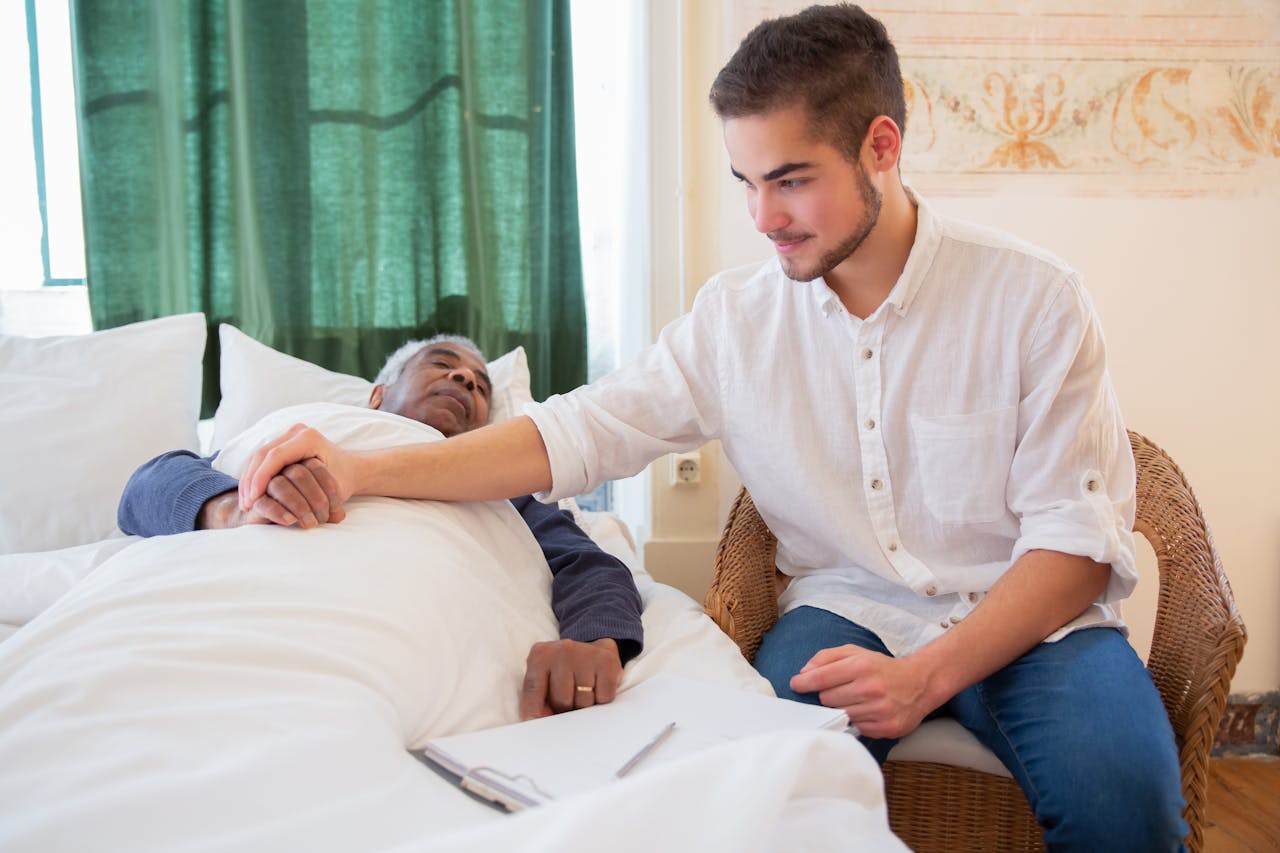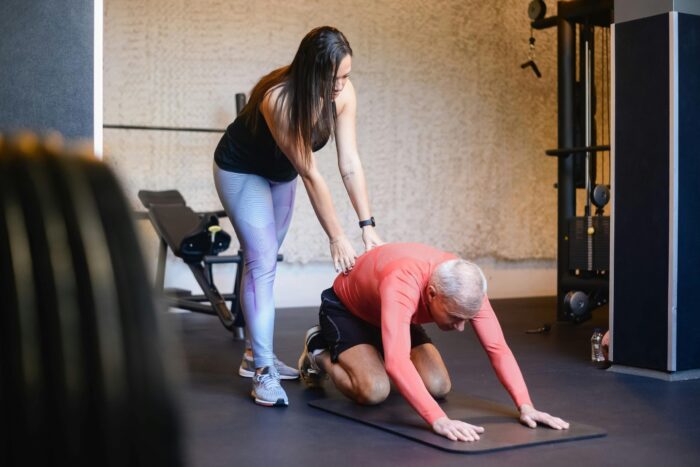Is It Safe For An 75 - 80 Year Old To Fly?
Flying is generally safe for seniors aged 75-80, provided they are in good health. It’s essential to consult with a healthcare provider before the trip to address any medical concerns and ensure vaccinations are up to date. Seniors should also consider their comfort and mobility needs, such as arranging for wheelchair assistance if necessary. Staying hydrated, moving around periodically during the flight to prevent blood clots, and carrying necessary medications can help ensure a safe and comfortable journey. Comprehensive travel insurance that covers medical emergencies is also recommended.

Travel Safety for Seniors
Traveling can be an enriching and enjoyable experience for people of all ages, including seniors. However, as we age, it’s essential to take extra precautions to ensure that our journeys are safe, comfortable, and stress-free. This guide will provide comprehensive advice on preparing for trips and vacations safely, choosing senior-friendly travel options, and maintaining health and safety while traveling.
Preparing for Trips and Vacations Safely
Consult with Healthcare Providers: Before embarking on any trip, seniors should schedule a visit to their healthcare provider. This step is crucial for addressing any health concerns and ensuring that they are fit for travel. During this consultation, it’s essential to:
- Update vaccinations: Depending on the destination, certain vaccinations may be required or recommended.
- Discuss medical conditions: Seniors with chronic conditions should discuss their travel plans with their doctor to manage their health effectively while away.
- Obtain necessary prescriptions: Ensure that you have an ample supply of all medications, including extras in case of travel delays.
Plan and Research: Thorough research and planning can prevent many potential issues while traveling. Seniors should:
- Research destinations: Look for places known for their senior-friendly amenities and accessible healthcare facilities.
- Create a detailed itinerary: Include travel routes, accommodation details, emergency contacts, and the location of local hospitals and clinics.
- Check travel advisories: Stay informed about any travel advisories or health guidelines related to the destination.
Pack Wisely: Packing appropriately is vital to ensure a comfortable and safe trip. Important items to include are:
- Medications and first-aid kit: Keep medications in their original containers and pack a first-aid kit with essentials like bandages, antiseptics, and pain relievers.
- Comfortable clothing and supportive shoes: Choose clothing suitable for the climate and comfortable shoes to prevent foot pain or injuries.
- Important documents: Carry copies of your passport, insurance, medical information, and any other essential documents.
Travel Insurance: Comprehensive travel insurance is a must for seniors. It should cover medical emergencies, trip cancellations, and other unexpected events. When purchasing travel insurance, make sure to:
- Understand the policy details: Know what is covered, including coverage limits and exclusions.
- Check for pre-existing conditions: Ensure that the policy covers any pre-existing medical conditions.
Choosing Senior-Friendly Travel Options
Transportation: Selecting the right mode of transportation can significantly impact the comfort and safety of the trip. Consider the following options:
- Direct flights: Whenever possible, choose direct flights to reduce travel time and avoid the stress of layovers.
- Senior-friendly airlines: Some airlines offer discounts and special assistance for seniors, such as priority boarding and wheelchair services.
- Train travel: Trains can provide a more relaxed and scenic travel experience. Ensure that the train service offers comfortable seating and easy access.
Accommodations: Where you stay is just as important as how you get there. When choosing accommodations, consider:
- Accessibility: Look for hotels or rentals with elevators, ramps, and accessible bathrooms.
- Senior discounts and services: Many accommodations offer discounts for seniors and additional services such as shuttle buses and medical assistance.
- Proximity to amenities: Ensure that the property is close to healthcare facilities, grocery stores, and public transportation.
Tour Operators and Travel Agencies: Specialized travel agencies can offer tailored experiences for seniors. When selecting a tour operator or travel agency:
- Look for specialization: Choose agencies that specialize in senior travel and understand the unique needs of older travelers.
- Guided tours: Opt for tours with a slower pace, frequent rest stops, and accommodations that prioritize comfort.
- Verify credentials: Check reviews and credentials to ensure the tour operator is reputable and reliable.
Health and Safety Tips for Traveling
Stay Hydrated and Eat Well: Maintaining hydration and a balanced diet is crucial while traveling. Seniors should:
- Drink plenty of water: Carry a reusable water bottle and drink regularly to avoid dehydration.
- Eat balanced meals: Choose nutritious foods that provide energy and avoid skipping meals.
Medication Management: Proper management of medications can prevent health issues during the trip. Tips include:
- Original containers: Keep medications in their original packaging to avoid any confusion.
- Set reminders: Use a pill organizer or set alarms on your phone to ensure timely medication intake, especially when crossing time zones.
- Extra doses: Pack extra doses of medications in case of travel delays.
Safety Precautions: Staying safe is paramount. Seniors should:
- Avoid large amounts of cash: Use credit or debit cards to minimize the risk of theft.
- Secure valuables: Keep important items like passports, money, and electronics in a secure, easily accessible place, such as a money belt or a hotel safe.
- Be cautious: Stay in well-lit and populated areas, especially at night, and avoid carrying heavy bags that could cause strain.
Health Monitoring: Regularly monitoring health can help detect any issues early. Consider:
- Medical alert bracelet: Wear a bracelet that indicates any chronic conditions or allergies.
- Seek medical help: Don’t hesitate to seek medical assistance if feeling unwell.
- Rest and avoid overexertion: Take regular breaks to rest and avoid participating in overly strenuous activities.
Emergency Preparedness: Being prepared for emergencies can make a significant difference. Seniors should:
- Know emergency numbers: Learn the local emergency numbers and basic phrases in the local language.
- Carry a mobile phone: Ensure the phone works internationally or get a local SIM card.
- Understand the local healthcare system: Know where the nearest hospitals and clinics are and how to access them.
What Are The Tsa Rules For Seniors?
The Transportation Security Administration (TSA) has specific guidelines to make the security screening process more accessible and comfortable for seniors aged 75 and older. Here are the key rules and tips for senior travelers:
Expedited Screening: Seniors 75 and older can keep their shoes and light jackets on during the screening process. They are also eligible for TSA PreCheck, which offers a faster, less intrusive screening experience.
Medical Devices and Aids: Seniors can request a private screening if they have medical devices, implants, or mobility aids like wheelchairs, canes, or walkers. Inform the TSA officer about any medical conditions or devices before the screening begins.
Medications: Prescription and over-the-counter medications are allowed in carry-on bags. They should be in their original packaging, and it’s helpful to have a doctor’s note or prescription. Medications are not subject to the 3-1-1 liquids rule but should be declared to the TSA officer for inspection.
Liquids and Food: Seniors can bring necessary liquids, gels, and aerosols for medical purposes, including nutritional supplements, in quantities greater than 3.4 ounces, but these must be declared at the checkpoint.
Pat-Downs: If a senior cannot undergo standard screening procedures, a pat-down may be required. Seniors can request a private screening and have a companion present during this process.
Conclusion
Traveling as a senior can be a delightful and enriching experience with the proper preparation and precautions. By consulting healthcare providers, planning meticulously, choosing senior-friendly travel options, and following health and safety tips, seniors can enjoy their journeys with confidence and peace of mind. Whether exploring new destinations or revisiting cherished places, the joy of travel remains a valuable part of life at any age.
Related Articles

What is Palliative Care?
Palliative care is a specialized medical care approach focused on providing relief from the symptoms and stress of a serious illness.

Understanding Assisted Living
Assisted living provides older adults with a residential option that combines housing, personal care, and health services.

Introduction to Nursing Homes
Assisted living offers daily support and independence; nursing homes provide 24/7 medical care;

Benefits of Yoga for Seniors
Discover how yoga can enhance flexibility, balance, and mental well-being





